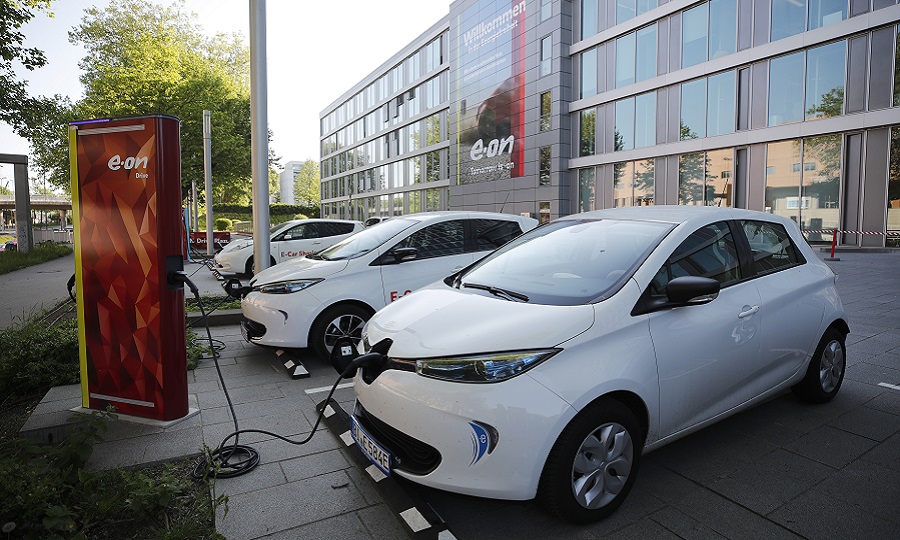
The self-driving car uses a combination sensor and machine learning algorithms to perform driving tasks. These include parking, adaptivecruising control, and steering. These technologies have great potential for road safety, despite criticisms. The technology does have limitations, however, before mass deployment.
Although autonomous vehicles have yet to be made available for the public, they are in advanced stages of development. They may not be ready yet for individual rides but they have the potential revolutionize both the auto industry, and personal mobility. They can be trusted and safely operated by themselves without human drivers. They are also expected decrease highway deaths. They are capable of monitoring traffic conditions, taking tactical decisions and avoiding collisions.
Hand signals are a major obstacle to fully automated vehicle operation. This is done using a combination of radars, cameras and other sensors. These systems calculate distances to objects and interpret their characteristics. These devices can be found on both the rear and front bumpers. In addition, maps and other mapping vehicles are used to supplement the autonomous car's ability to perceive its surroundings.

Another key element in autonomous operations is LiDAR, or laser radar. These devices can measure distance, time of flight, 360-degree visibility, and other parameters. These sensors can be embedded in a wide range of vehicles and are poised to see significant growth. There is a growing market in light truck use of these sensors.
According to reports, a prototype smartphone app that incorporates these technologies should be available for field testing within six month. The app will help average drivers save around $125 per annum on fuel costs. This is based upon the fact that an average driver drives approximately 20,000 miles annually. The application would not require a direct connection to a car, but rather analysis of the vibrations of a car and the sounds it makes. The application allows you to identify objects such as pedestrians or curbs.
A major advantage of the technology is that it can be installed in just about any car. Some automakers are even positioning themselves for the AI personal automobile market by adding LiDAR sensors to their vehicles. Ford is leading the charge. Ford announced a $1Billion investment in Argo AI. This fund will be used in developing software for self-driving future vehicles. Similar to Uber's investment into Otto, an autonomous truck startup, the funding will be used to develop software for future self-driving vehicles.
Artificial intelligence is not new but it is rapidly becoming a safer option for car diagnostics. MIT has a research programme that studies vehicle diagnostics. The researchers have published several papers on the subject.

The software that controls autonomous vehicle technology is also a key component. This includes machine learning, neural networks, and other technologies. The neural networks are trained so that they can recognize patterns in data. These machines can then be used for making better driving choices.
FAQ
What qualifications are required to become a truck mechanic
This job requires you to be a skilled mechanic, although you do not need any formal training. Your experience is invaluable as you know how to diagnose problems quickly and efficiently.
Also, your knowledge of diesel technology will be a benefit as you can help us understand which parts are needed for our vehicles.
What is the difference between an automotive technician and a mechanic?
Both are related, but they are not the same. An automotive technician maintains cars, while a mechanic repairs them.
A mechanic should be able to do simple tasks quickly and have good manual dexterity. A mechanic must be able diagnose and fix problems quickly and accurately.
An automotive technician is required to have more technical knowledge than a mechanic. They must be capable of reading blueprints and using tools such as drills, wrenches, etc.
They must be able and competent to safely perform complicated procedures. They must also be familiar with different types of engines and electrical systems.
They must also understand the interplay of different parts.
As a result, mechanics typically make less than technicians. Both jobs offer many possibilities.
Is it worth learning to be a mechanic?
The answer to that question depends on what your life purpose is. If you're looking for money, then it's true. But, if there are meaning and purpose in your life, then it's not.
It's not worth learning mechanics if you don’t have the skills. You'll waste your time. It will not make you rich. It will not make you famous. It is unlikely that you will be made famous.
It would take you years to learn how to do everything correctly. This would mean that you would have to pay someone else for your car's repair. Most people avoid doing this. They find something more worthwhile.
Summarising, if your goal is to make lots of money, go for it. But if you want to live a meaningful life, stay away from the mechanic's industry.
What are the qualifications for an automotive technician
You must have graduated high school or GED, with excellent English and math grades. You also need to be able to read and write well. You will need to pass a written test and then go through a series of practical exams before being allowed to start work.
What qualifications are necessary to become a mechanic
A series of exams is necessary to become a mechanic. These include:
-
A general knowledge test
-
A practical exam
-
An apprenticeship test
These tests are designed to ensure that you understand the basic concepts of mechanical engineering and physics before you start working as a mechanic.
After passing these tests, you will be eligible to become a mechanic. But, you will still need an apprenticeship. This will involve trade training.
To learn all there is to know about fixing vehicles, you will need workshops and classes. Experienced mechanics will also be required.
A mechanic must be highly focused and attentive to detail in order to succeed. Repairs to vehicles require you to pay attention to every detail.
To become a good mechanic, you need patience and persistence. If you don’t like following directions, then this career path may not suit you.
However, if you love cars or enjoy working on them, you might be happy in this field.
Do I need to have a degree to work as an automotive mechanic? Can I study part-time?
Although it's not mandatory, a degree can help. Employers are more likely to hire candidates who have completed a complete degree. This shows you have put in the work and achieved success.
However, it doesn't mean you can't still work while studying. Some universities permit students to do coursework during summer holidays and complete their studies later in a year. Students can also take classes part time throughout the academic year.
Statistics
- There were 749,900 jobs available for automotive service technicians and mechanics in 2016, which is expected to grow by six percent through 2026. (jobhero.com)
- Apprentice mechanics earn significantly less hourly than mechanics who have completed training, with a median wage of approximately $14.50 an hour, according to PayScale. (jobhero.com)
- According to the BLS, the median annual salary for automotive service technicians and mechanics in the United States was $44,050 in May 2020. (uti.edu)
External Links
How To
How to set up a business plan for a car repair shop
Before you can do anything else, it is important to have a solid understanding of how to begin a business. It is important to understand the type of business you are interested in. Start your business in a small, isolated town. In this way, you don't have as much to lose if the first few months go poorly. If you do decide to open an auto repair shop, it is important to choose a locale near a large number of people. Your customers will be able to come to see you when they have problems, and you'll be able to sell them new parts at low prices.
You might consider opening a franchise opportunity when you start your own business. Franchises usually require less capital investment than a traditional business does. However, monthly fees and royalties are still required from the franchisor. You should also be careful when selecting a franchise. Some franchises can be scammed. Many franchises promise high returns, but do not deliver.
If you have retail experience, you may be able to start your own auto-repair shop. Many people who started their own business say that it was one they've made the best decision. But you must create a business strategy before you even start. Write down everything that you want your company to do. One example of this might be to increase sales, improve customer service, or lower costs. These goals are important to set and can be used as a guideline for how you will achieve them.
If you're looking to open an auto repair shop, the next step is to figure out how you can finance it. People borrow money from banks and credit cooperatives to finance their businesses. Collateral is usually required by banks. You must offer collateral. A few people will even borrow against their houses. To qualify for a loan, you'll need to show that you have enough cash flow to repay the loan.
Once you have secured financing for your business, it is time to get a license. You can apply for a variety of licenses depending on which type of business your are interested in operating. Auto mechanics must have a state license while body shops only need a federal license.
It's not necessary to develop a marketing strategy. Before you begin advertising, you will need to establish what your company stands out for. What makes your company different from other companies in this regard? How can your business improve on the work of others? These questions are essential to creating a strong brand personality. With this information you will be better equipped to design engaging advertisements.